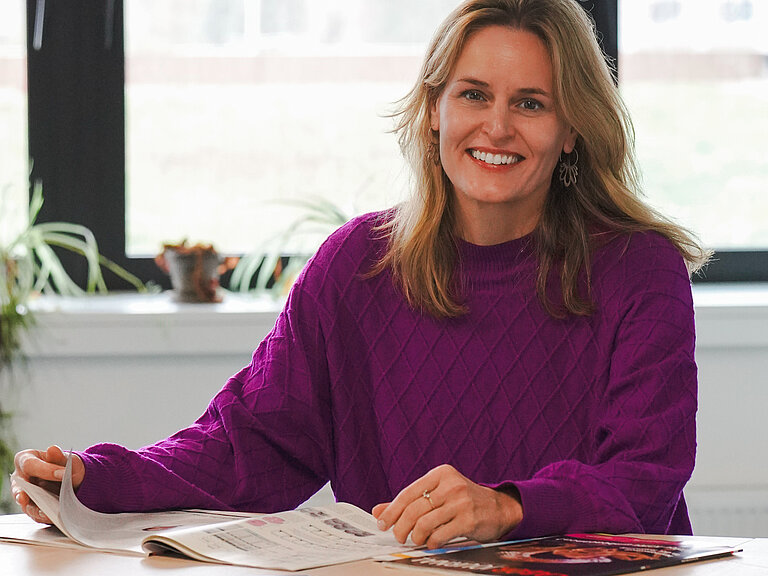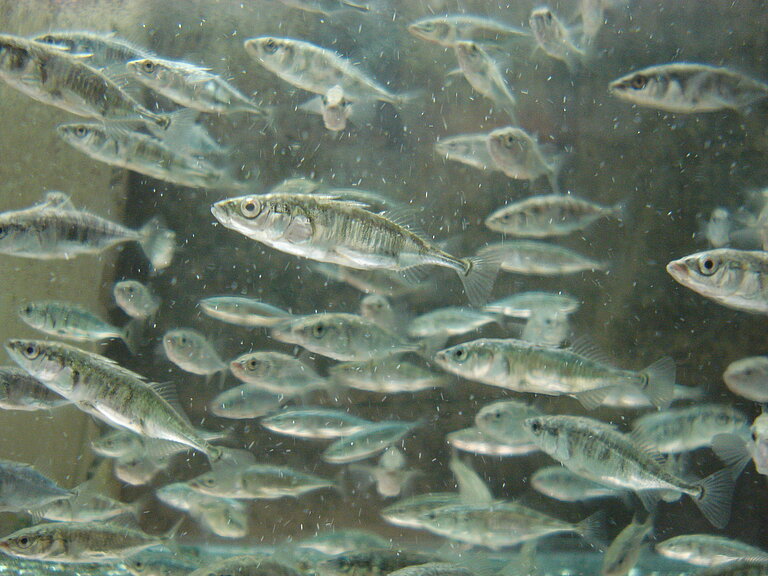International network on epigenetics in fish
Humboldt Fellow Professor Dr Maren Wellenreuther enriches marine ecology research at GEOMAR
With its research fellowships, the Alexander von Humboldt Foundation supports scientific cooperation between foreign and German researchers. The funding enables experts from abroad to spend time at German research institutions collaborating on a project where they see the best conditions for its implementation. In April, the GEOMAR Helmholtz Centre for Ocean Research Kiel welcomed a new fellow from New Zealand: Professor Dr Maren Wellenreuther will work with Professor Dr Thorsten Reusch in the field of marine ecology during three multi-months stays.
Director Professor Dr Katja Matthes is delighted to welcome her to GEOMAR: "Professor Dr Maren Wellenreuther enriches our research centre not only with her excellent expertise, but also with her international perspective. Her contribution to the research and global networking of our institute will undoubtedly be of great value. I would therefore like to thank the Alexander von Humboldt Foundation for its commitment and sponsorship, as well as my colleagues whose hospitality has made this collaboration possible".
For Dr Maren Wellenreuther, her first day in Kiel was marked by a special reunion: The ALKOR, one of the two research vessels operated by GEOMAR, was docked at the pier right in front of her new workplace. “I sailed on the ALKOR over 20 years ago when I was studying biology in Hamburg,” she recalls. Since then, her academic stations have included Adelaide (Australia), Lund (Sweden), and finally Auckland and Nelson (New Zealand), where she has been researching at the New Zealand Institute for Plant and Food Research since 2014 and teaching the University of Auckland since 2018.
She came to GEOMAR with a Humboldt Research Fellowship for experienced researchers. The program allows exceptionally qualified foreign scientists to carry out a self-chosen long-term research project at a research institution in Germany in cooperation with the scientific host. The fellowship can be divided flexibly into up to three stays within three years. And so, Dr Wellenreuther will be living in Kiel with her family for the next three years, from April to June each year.
“The infrastructure here is fantastic,” she says, referring to the climate chambers and specialized laboratories of the new GEOMAR building, “but I will spend most of my time at the desk.” Together with her scientific host, Professor Dr Thorsten Reusch, Head of the Marine Ecology research area, she will use her first research stay to prepare a joint publication. Both share an interest in epigenetics and genetics, specifically, how genetic and epigenetic variation influences the ability of populations to adapt to changing environments.
In her project “SOS Adapt” (The Substrate Of Species Adaptation in a Warming Ocean), Dr Wellenreuther aims to investigate whether marine organisms have the genetic potential to adapt to climate change and what role epigenetic variation plays in this process. While genetics refers to the DNA sequence inherited from parents, epigenetics refers to changes that can be made to DNA during life without altering the underlying sequence. These changes can be influenced by a variety of environmental factors. There is a wealth of knowledge on both the German and New Zealand sides that should be combined in the project.
“I am particularly interested in the exchange – what are our groups particularly good at, what can we learn from each other?” says Dr Wellenreuther. In New Zealand, for example, there is a lot of experience in fisheries and aquaculture research, as well as in optimizing stock management and applying automated feature detection of fish using artificial intelligence. “This data is crucial for linking it with epigenetic and genetic data, as it provides the biological context that is needed for interpretation.”
Additionally, she is generally curious about what is currently important in research in Germany, in Europe. “What are the big questions, the strategically important tasks for science? After more than 20 years abroad, I have a completely different perspective on this.”

Networking and collaboration: Professor Dr Maren Wellenreuther from the New Zealand Institute of Plant and Food Research, together with researchers from GEOMAR, wants to improve knowledge on the epigenetic adaptation of fish to climate change. Photo: Ilka Thomsen, GEOMAR

Fish such as the three-spined stickleback are exposed to rising sea temperatures. Dr Maren Wellenreuther and her host Dr Thorsten Reusch from GEOMAR are investigating whether and how they can adapt to this, and what role genetic and epigenetic variations play in this process. Photo: M. Heckwolf, GEOMAR


